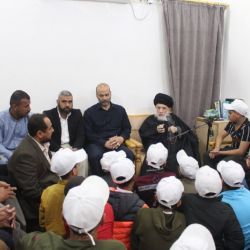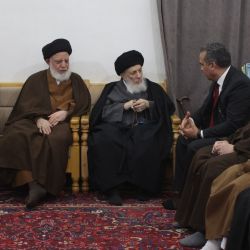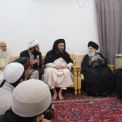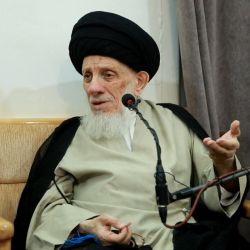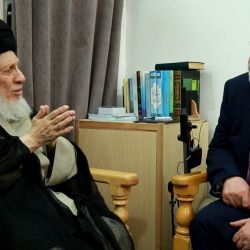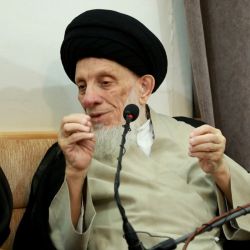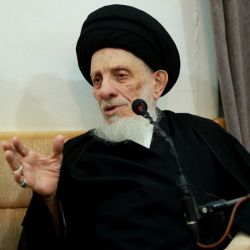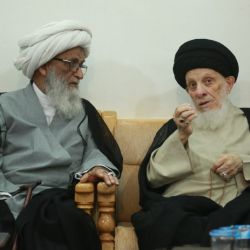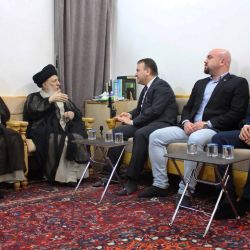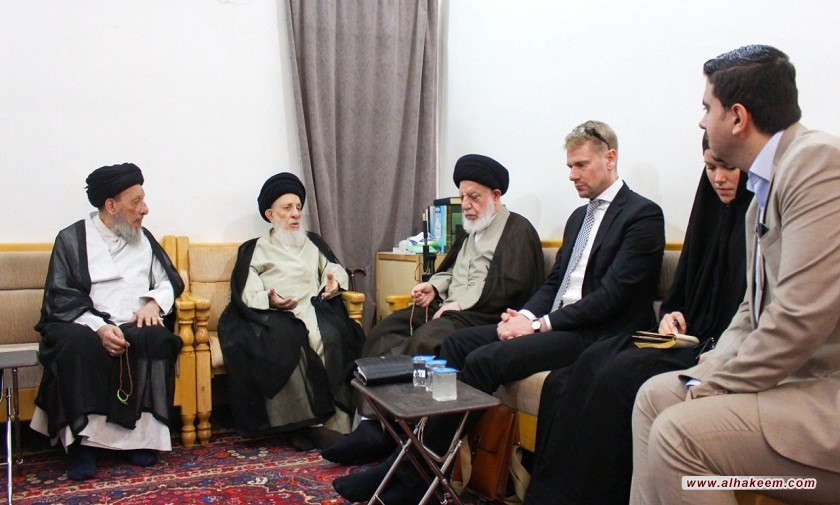
His Eminence Grand Ayatollah Sayyid Mohammed Saeed al-Hakeem received Mr. Joachim Bergstrom, the Swedish Ambassador to the Organization of Islamic Cooperation (OIC) on 27 April 2019.
During the meeting, His Eminence called the international community towards a serious attempt to blocking the sources of terrorism and extremism, in all its types and manners, and to eliminate this cancerous illness from its roots, and not to ignore it. It has created much misery and tragedy in different societies and is spreading its culture, as well as distorting the true image of Islam, which the Holy Quran and the Holy Infallibles (peace be upon them) deliver.
His Eminence indicated the importance of the international community giving due regard to noble ethical traits, which will lead to participating in forming good societies and families.
His Eminence also mentioned the role of Marji'iyya, which requires of its followers to follow the laws of the land, to be truthful, responsible, sincere and to abstain from creating hardships. The Marji'iyya emphasizes the peaceful coexistence and respect for others, whatever ethnicity or creed they may have.
Mr. Bergstrom thanked His Eminence, appreciated his warm welcome. He also expressed his appreciation of the role of Marji'iyya in bringing about peace and easing religious tension in the region.

